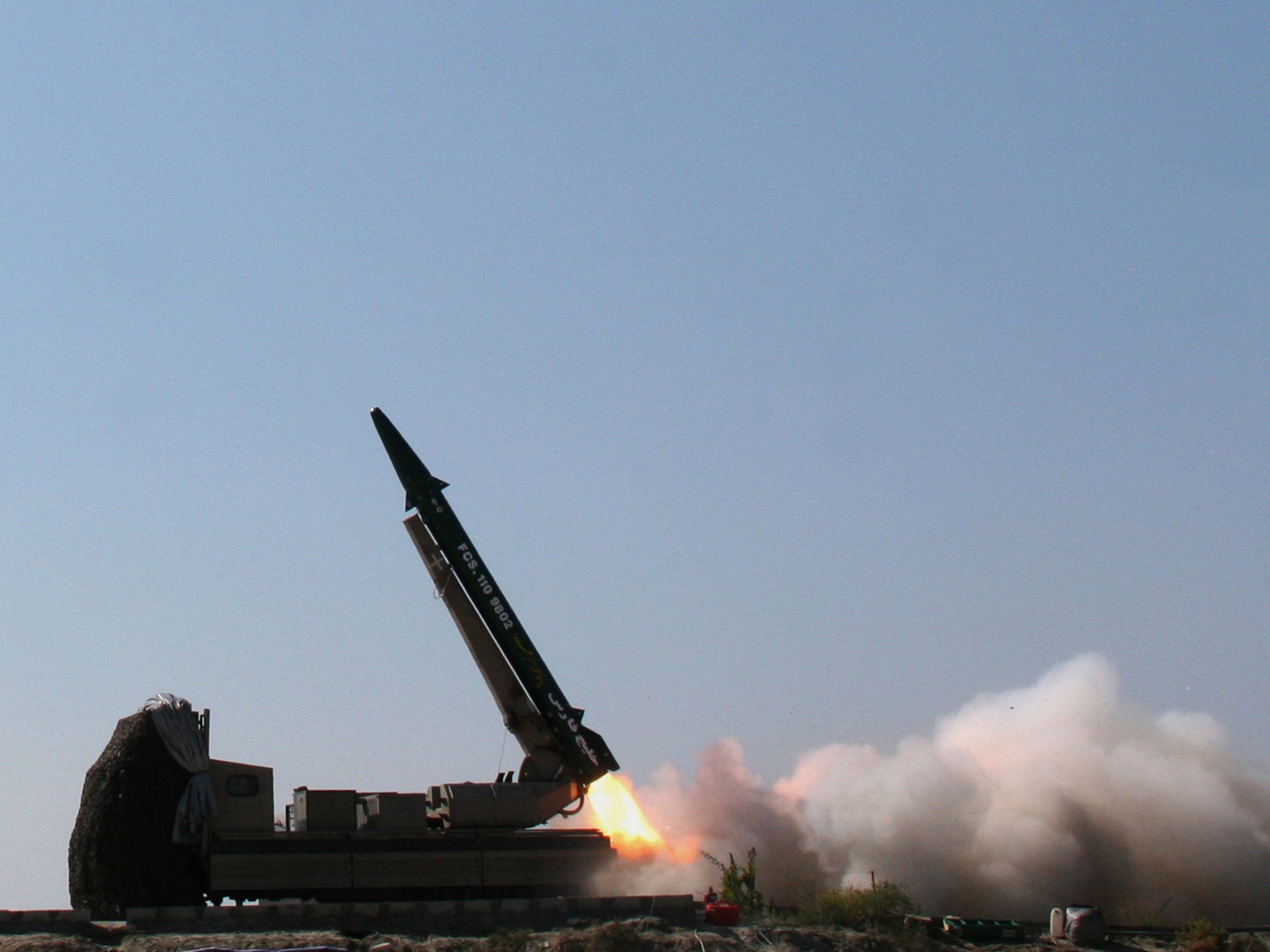Iran confirms ballistic missile test and vows it will not 'allow foreigners to interfere in our affairs'
Iranian minister says test did not violate landmark nuclear deal struck in 2015

Your support helps us to tell the story
From reproductive rights to climate change to Big Tech, The Independent is on the ground when the story is developing. Whether it's investigating the financials of Elon Musk's pro-Trump PAC or producing our latest documentary, 'The A Word', which shines a light on the American women fighting for reproductive rights, we know how important it is to parse out the facts from the messaging.
At such a critical moment in US history, we need reporters on the ground. Your donation allows us to keep sending journalists to speak to both sides of the story.
The Independent is trusted by Americans across the entire political spectrum. And unlike many other quality news outlets, we choose not to lock Americans out of our reporting and analysis with paywalls. We believe quality journalism should be available to everyone, paid for by those who can afford it.
Your support makes all the difference.Iran has confirmed it carried out a ballistic missile test but insisted it did not violate the landmark nuclear deal reached with world powers.
Hossein Dehghan, the Iranian defence minister, said: “The recent test was in line with our plans and we will not allow foreigners to interfere in our defence affairs."
American officials said a medium-range ballistic missile exploded after travelling 630 miles on Sunday but the account was not originally confirmed by Tehran.
The UN Security Council met privately over the launch on Tuesday evening, which Boris Johnson called "very concerning".
Nikki Haley, Donald Trump's pick for US ambassador to the UN, said afterwards that the council should take action over the “alarming" test.
She called it “absolutely unacceptable” and said Iran was“being naive” by thinking the US and others would believe repeated assertions by Iran that the weapons development was for defence.
“I will tell the people across the world that is something we should be alarmed about,” she added. “You will see us call them out as we said we would, and you're also gonna see us act accordingly.”
Mr Trump has frequently targeted Iran, criticising the nuclear deal and including the nation among seven Muslim-majority "countries of concern" in an executive order temporarily banning immigration.
Hassan Rouhani, the Iranian President, issued a muted response saying: "Let's help neighbouring cultures, not build walls between nations."
Britain's UN ambassador, Matthew Rycroft, said the Security Council decided to refer the test to its committee dealing with Iranian issues (2231) and asked for an investigation.
He described the step as "another destabilising step for an already unstable region".
Mohammad Javad Zarif, the Iranian foreign minister, insisted missile tests did not violate the historic nuclear deal struck in 2015 to limit his country's capability.
He said the missiles were not designed to carry a nuclear warhead - a move prohibited by a UN Security Council resolution - and were part of "legitimate defence”.
But the US, which maintains its own set of sanctions against Iran, has argued that previous launches are in defiance of the ban.
Its latest launch provoked anger among Israeli politicians, with Prime Minister Benjamin Netanyahu saying he planned to discuss Iran in his upcoming meeting with Mr Trump in Washington.
“I intend to raise with him the renewal of sanctions against Iran, sanctions against the ballistic missiles and additional sanctions against terror and also to take care of this failed nuclear agreement,” he said.
In March, Iran test-fired two ballistic missiles - one emblazoned with the phrase “Israel must be wiped out” in Hebrew - sparking international outcry.
The EU called on Tehran to “refrain from activities which deepen mistrust“, with foreign policy spokesperson Nabila Massrali saying that a ballistic missile test would not constitute a violation of the nuclear deal but was “inconsistent” with Resolution 2231.
Additional reporting by agencies
Join our commenting forum
Join thought-provoking conversations, follow other Independent readers and see their replies
Comments